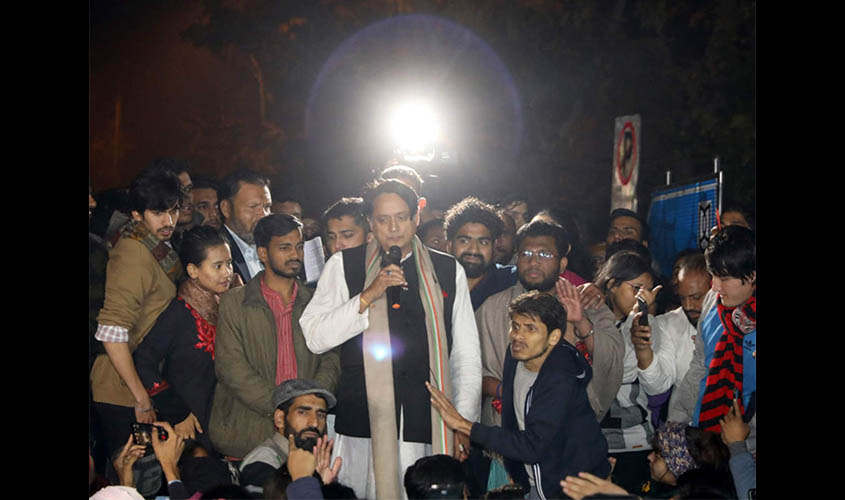New Delhi: Opposition to the Citizenship Amendment Act (CAA) and solidarity with those protesting against the CAA form the cornerstone of the Congress’ strategy to fight the Delhi Assembly elections scheduled for 8 February. The Congress is targeting 15-20 minority dominated seats for this purpose, in the hope that the minorities will side with it in the elections. And it is for this reason that Congress leaders have been taking part in the agitation against the CAA in Delhi, sources confirmed to this newspaper. The sources added that Congress leaders were visiting Shaheen Bagh as part of the party’s larger poll strategy, even though the party was struggling with defections and did not have many workers on the ground. As per a source, Congress leaders have been asked to join more protests in Delhi, as well as make speeches against CAA so that the party “looks like taking a pro-Muslim stand”.
Initially, the Congress’ students’ wing, the National Students’ Union of India (NSUI), joined hands with anti-CAA protesters at the Jawaharlal Nehru University (JNU) and Jamia Millia Islamia; later, Congress leaders such as Shashi Tharoor, Sandeep Dikshit, Subhash Chopra (Congress’ Delhi unit president) and Mani Shankar Aiyar, appeared with the protesters at Shaheen Bagh.
The minority community, as per data, accounts for 13% of Delhi’s total population. Out of a total 70 Assembly constituencies, on 15-20 seats, minority voters are dominant enough to decide the poll outcome.
As per Election Commission data, in five Assembly seats, 80-90% voters are from the minority community and on 15-20 seats, minority voters can impact the poll results. The minority-dominated seats in Delhi include Okhla, Seelampur, Matia Mahal, Ballimaran, Mustafabad and Chandni Chowk, Sadar Bazar, Kirari, Sangam Vihar, Babarpur, Karawal Nagar and Rithala. Chunks of minority voters are also present in Gandhi Nagar and Lakshmi Nagar. In the past, most of these Assembly seats were considered as Congress strongholds, but now are represented by the Aam Aadmi Party (AAP).
The Congress had held most of the aforementioned seats before AAP routed it in the 2015 Assembly elections.
A source in the Congress told The Sunday Guardian, “Only an anti-CAA wave can help the Congress reclaim some of the lost ground in the Delhi Assembly elections. The Congress is aware that its comeback in Delhi politics depends on the support of from Muslims. And that is why the Congress is trying to make a dent in AAP’s Muslim vote bank.”
The source added that “The Congress is hoping that the minority community is unhappy with AAP for not taking a strong stand against CAA. AAP did not bother to visit any of the protesting sites in the capital or outside the city, while Congress leaders made a beeline for JNU, Jamia and Shaheen Bagh. Congress is hoping to profit from AAP’s neutral stand on the issue.”
Speaking at the Shaheen Bagh protest site, Shashi Tharoor raised the issue of AAP’s silence, while Sandeep Dikshit claimed that the Congress took a principled stand against CAA and that was why the leaders were visiting the site of the protest.

